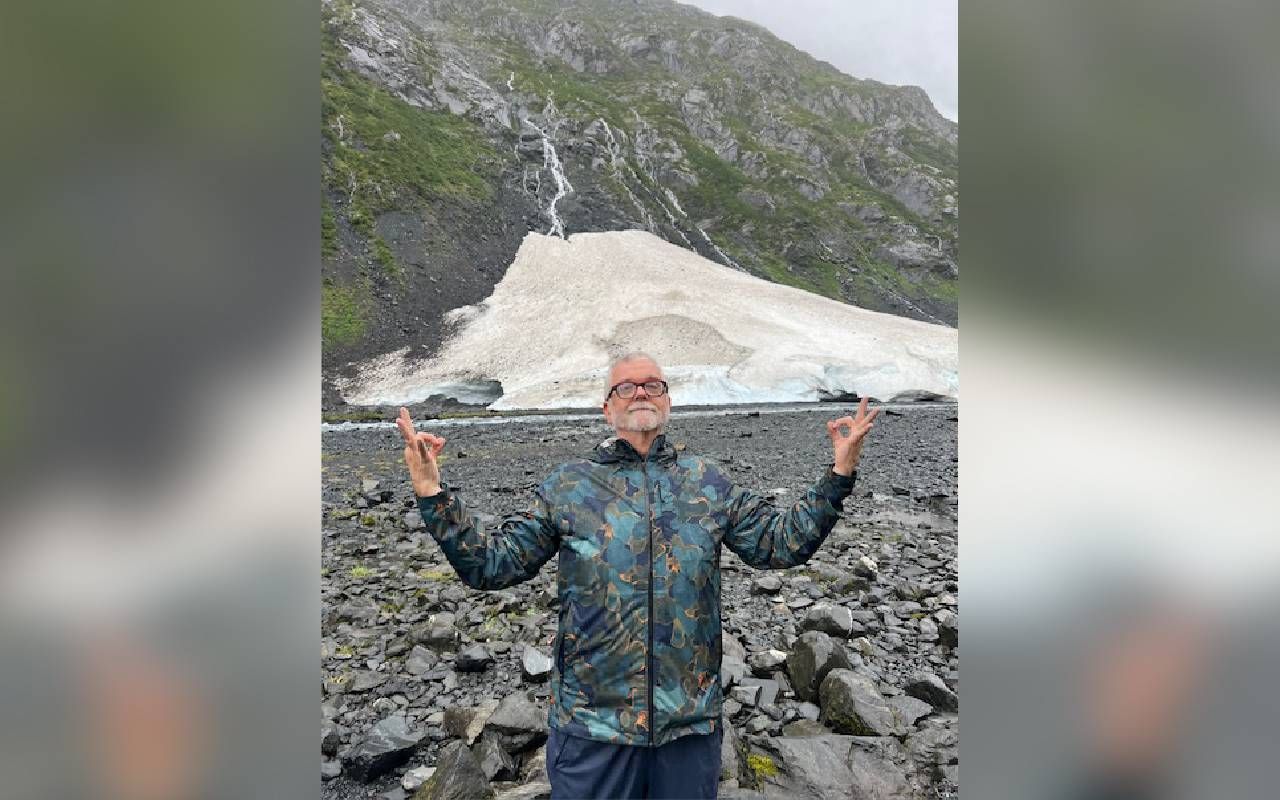Superman's Gone: Vulnerability and Cancer Treatment
The cancer, then the side effects of the treatment, upset my equilibrium of ordinary life and made a hard right turn away from my experience of physical realness and aliveness
Editor’s note: In our lifetime, one in eight men will be confronted with the challenges presented by prostate cancer. This is the fourth story in a series of six articles where Jackson Rainer discusses the implications of prostate cancer diagnosis, treatment and the impact on quality of life.
Early in the process of diagnosis and treatment for prostate cancer, I found great solace living in a city known as a hub for sophisticated medical care. I quickly and assertively moved into the machine of contemporary medicine. I felt as though I was an informed consumer engaging the circumstance at hand, or in my case with prostate cancer, the circumstance below the belt.
As a psychologist practicing psychotherapy, I have worked for decades with individuals and their families who struggle with the demands of life-threatening illness. I claim recognition of the contemporary challenges of health care costs and access. I view myself as an empathic provider in the system.

Never in my naïve thoughts or imagination did I believe that, in my lifetime, I would be confronted with cancer. Having cancer means that I am sick due to a physical breakdown that needs fixing. When I was confronted with such a noxious personal health challenge, I believed that I would be a temporary patient of the medical system. Once a cure was exacted, cancer would go on the shelf, without dis-ease becoming a defining point in my life narrative.
Never in my naïve thoughts or imagination did I believe that, in my lifetime, I would be confronted with cancer.
I have long realized, and in part embrace the truth, that our contemporary western medical system is defined through the philosophical lens of materialism, the tendency to consider material possessions and physical comfort as more important than spiritual values.
There is no doubt or surprise that medicine treats the diseased body as an object in need of mechanical and chemical repairs. I am genuinely grateful for the clinical protocols, rubrics and trials that do indeed facilitate restoration of physical health. I continue to receive the latest in treatment protocols that go beyond the traditional standards of care.
Medical providers have been excellent in navigating cancer with the plan of restoring my physical health. That said, the system is unable to help me with the psychic perspective to examine life, face mortality, and sort out deeply felt personal values. My fine, skilled physicians provide sophisticated interventions to "kill cancer," as my primary oncologist said. As my soma fights, my psyche has been activated to explore the experience of the "soul" of illness and search for meaning.
The Physical Course of Treatment
With careful consideration, I opted for a treatment regimen of androgen deprivation therapy coupled with a course of proton radiation. ADT uses drugs to lower androgen (hormone) levels and slows prostate cancer. In its ugliest nomer, ADT is known as 'chemical castration.' Proton beam therapy directs radiation in a narrow band that kills cancer cells. The regimen is prescribed by determining the diagnostic risk profile of the patient based on his physical age and stage of the cancer. In my case, I received a six-month dose of ADT and 28 episodes of radiation, delivered daily over the course of several weeks.
Not surprisingly, because they involve blocking a major hormone, ADT and radiation have what are known in the medical community as complex "side effects." Sexual dysfunction is a casualty of this type of treatment, as are the potentials for bone disease, cardiovascular risks, liver disease and cognitive decline, colloquially known as "brain fog" or "chemo brain."
When I was diagnosed, my friends encouraged me to use my superpowers to "fight it…you'll beat this…you can't keep a good man down.
The cancer, then the side effects of the treatment, upset my equilibrium of ordinary life and made a hard right turn away from my experience of physical realness and aliveness. Body, mind and spirit moved into unknown territory. I became a stranger in a strange land.
Superman Has Left the Building
As a boy, Superman was my aspirational model of masculinity – to be strong, brave and independent, to suppress fear and pain, to hide softer emotions, and to stand confidently in the face of challenge. In childhood, I read and re-read every Superman comic that could be purchased and treasured.
As an adult diagnosed with prostate cancer, I intended to take care of things as I was taught while enrolled as an Honors Student during my early years in The Superman Training Academy: the Man of Steel fighting for Truth, Justice and a Better Tomorrow. When I was diagnosed, my friends encouraged me to use my superpowers to "fight it … you'll beat this … you can't keep a good man down."
What an alarming surprise when the insidious process of cancer and the loss of hormonal regulation took me away from the familiar social constructs of masculinity as I lost independence, confidence, sexual assertiveness and athleticism.
The Loss of Psychological Defense
When placed in a psychologically dangerous or threatening situation, in this case as the diagnosis and treatment of prostate cancer, a person retreats into tried-and-true defense mechanisms, i.e., self-regulating cognitive and mental strategies that separate and protect us from circumstances challenging self-concept and self-esteem.
These are automatic ways of reacting to environmental situations that bring up troubling emotions. Such defenses are typically employed unconsciously and out of personal awareness, though unusual behavior may be subtly evident to others. Defense mechanisms colloquially can be understood as a type of psychological governance providing protective self-deception that keep threatening realities at arm's length. Our defensive structures are organic and a part of normative psychological development, like the natural growth of the id, ego and superego.
I cry easily, wonder about mortality and the meaning of life, stay lonely much of the time, and live with fatigue that cannot be restored by sleep.
By design, an individual matures through experience, then progressively builds and lives with a personal defensive style, defined by a "That's the way I am…" temperamental understanding of self. Defense mechanisms are the psychological aids that facilitate the capacity to face anxieties that otherwise cause the feeling of danger.
Treatment for cancer is invasive. Protocols appropriately prioritize physical interventions and are unflinching in their design to attack and kill the aberrant cells and tumors. To be a compliant and active participant in the process, the patient must psychologically surrender and yield to a state of vulnerability characterized by repeated exposure to unexpected and unpleasant somatic, cognitive and psychological challenges.
Shortly after beginning ADT, I began to feel weak and puny, certainly not capable and stalwart. I was caught completely unaware and flat-footed when I realized that metaphorically, Superman really had left the building. Because of the nature of and treatment for the cancer, my masculine defenses were quickly and progressively irrelevant. Physically and psychically, the sense of myself as a man slowed to a crawl, and eventually went 'kaput.'
Formerly, I was considered by others to "have a mind like a steel trap." Now? I have a mind like a colander.
Many of my medical examinations and procedural courses of treatment require being disrobed, penetrated and scrutinized through different forms of scientific inquiry. Early during treatment, I met one of my primary nurse practitioners on the street, outside of the institute as we headed into a theater. I was social and waved as is characteristic of my extroverted way of living in the world. I realized he could not place me out of context of the treatment center. When he did recognize me, he laughed and said collegially, "Oh, hello, Jack. I've never seen you in clothes."
Months now into the state of living with cancer, I tell others that I could walk naked in a Peachtree Street parade without a whit of embarrassment.
I cry easily, wonder about mortality and the meaning of life, stay lonely much of the time, and live with fatigue that cannot be restored by sleep. I tend to wobble when I walk and alarm my friends when I rely on a cane for balance.
I have an ongoing pocketful of post-it notes to help me remember thoughts. My mind has become a Teflon landing strip: I see thoughts come in, bounce down the tarmac, and gently float into the abyss. Carrying a pencil and a piece of paper are now as essential as my wallet and car keys. Formerly, I was considered by others to "have a mind like a steel trap." Now? I have a mind like a colander.
The Takeaway
At the end of one particularly challenging treatment day, my exceptionally fine physician asked, "How are you?" I responded honestly and with more transparency than he expected. As our conversation unfolded, he asked, "Are you depressed? I can prescribe an anti-depressant."
"No, no. I'm a lot of things as I move through this process, but being depressed is not one of them," I responded.
He looked at me with confusion and concern. "Maybe you need to talk with someone," he said.
I asked him to open his computer's referral list page and read me the top three names of mental health providers. I am at the top of the Institute's list. He looked over his glasses and laughed as he said, "Can you give yourself a good talking to?"

Read More

